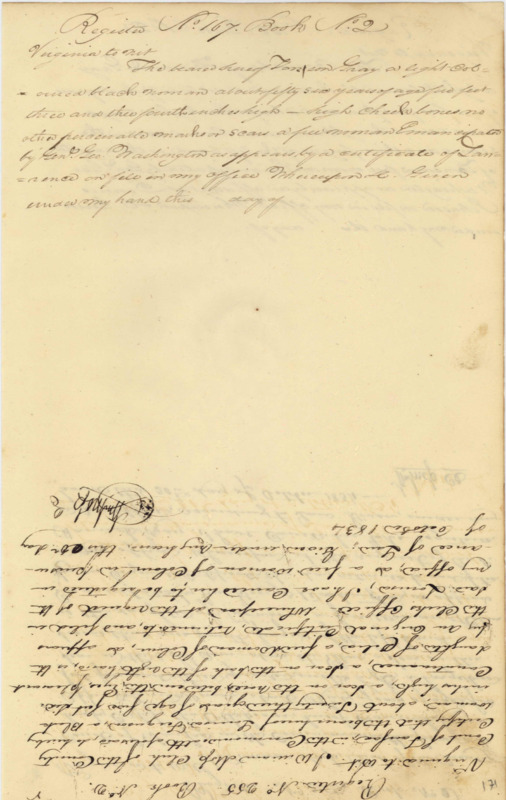Thornton Gray
Thornton Gray was an African-American man, born free, from an emancipated slave of George Washington, in approximately 1813-1815. Owning land in the Mount Vernon District of Fairfax, Gray's story is complicated, stretching far beyond even his own long life. This is a multimedia project attempting to shed light on Gray's life via publicly accessible documents at the Fairfax County Circuit Court and the Fairfax County Public Library, as part of the Black Lives Next Door Initiative at George Mason University.
Starting from documents in the 1830s confirming Gray's status as a free person of color, all the way to 1940 when he is taken off the land tax record, long after his death, Thornton Gray's story is a long but rather interesting one. Becoming a free person of color long before expected, in the 1830s, Gray was able to secure a marginally better standard of living than his other African-American counterparts who remained enslaved, and was thus able to purchase land in the Mount Vernon district in the 1850s (from a slaveowner no less) and begin to start a family, living mainly as a farmer for most of his life on that land.
We began the process of researching Thornton Gray by gaining information from the 1880 Colored Land Tax Record for Mount Vernon District, Fairfax County. From there, we moved to the Fairfax County Historic Records Center at the Fairfax County Circuit Court, where archivists helped to find his deed of purchase of his land, as well as records in the Registry of Free Negroes. Interestingly, with the help of the archivists, we were able to trace Thornton Gray's name all the way to the 1940 Colored Land Tax Record for Mount Vernon District, Fairfax County. At this point unclear as to when Gray died or knowing much about his family at all, we assumed that Gray had left his land to one of his children who was paying property taxes in his name. However, a search of the Will Index found no record of any will transferring that land.
From this, we proceeded to the Fairfax County Public Library's Virginia Room, which is specifically designed for local county and geneaological research. Using the Ancestry access provided via the library, I was able to find a comprehensive record of Thornton Gray and his family, to complement US Census data from 1870 and 1880 already provided. This allowed me to access Gray's death record, as well as death records of his two children, which were included to provide possible context and further research opportunities into where his children went.
We then returned to the Fairfax County Historic Records Center, appearing with new questions and eager to find more records on Thornton Gray. This is when I and the archivists discovered, via searching their card catalog, that Gray had a history of property tax delinquency, both before his death but in particular after. Many more records were found on his tax delinquency, revealing that little action was taken by Fairfax County or the Commonwealth for not paying his taxes.
While it is not definitively clear what happened to the land in the intervening years between 1940 and 2023, where a housing development currently sits on it, we will discuss questions and further research, and hope that you enjoy the current research provided on Thornton Gray!
